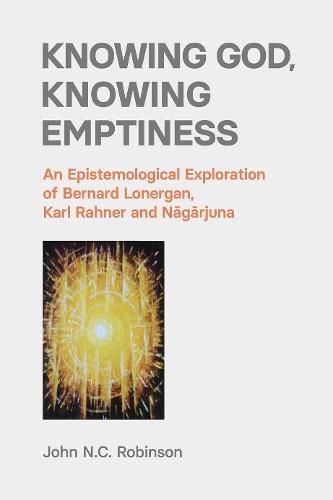Readings Newsletter
Become a Readings Member to make your shopping experience even easier.
Sign in or sign up for free!
You’re not far away from qualifying for FREE standard shipping within Australia
You’ve qualified for FREE standard shipping within Australia
The cart is loading…






Knowing God, Knowing Emptiness examines the viability of the epistemology proposed by Bernard Lonergan in his seminal work Insight, particularly with regard to its possible application in the field of interreligious dialogue. This enquiry is prompted by an awareness of the epistemological questions raised by the various dialogues taking place between different religions, and it is in light of this that Lonergan’s claim to comprehensiveness in his epistemology is examined. The method adopted is that of a dialectical experiment in which Lonergan’s epistemology could be tested. Lonergan claims in Insight that as his epistemology is both based on, and corresponds directly to, the structure of human cognition, it is therefore intrinsic to all instances of thought. Accordingly, he claims, it is ideally placed to mutually relate any combination of differing positions. This work seeks to test this claim by applying Lonergan’s epistemological categories to Karl Rahner’s Foundations of Christian Faith, and Nagarjuna’s Mulamadhyamakakarika. Having critically reconstructed Lonergan’s position as articulated in Insight, the book does the same for both of the texts selected and then parses them on the basis of the terms laid out by Lonergan in his epistemological system. It examines whether the thought contained in these two works could be fruitfully related on the basis of Lonergan’s epistemology, and what, if any, are the implications for the field of interreligious dialogue. These implications are considered both in terms of the theology of religions, and of the more recently developed comparative theology, typified by the approach taken by thinkers such as Francis X. Clooney and others. The book concludes by considering what, if any, are the possible developments that could result from the result of the attempted dialectic.
$9.00 standard shipping within Australia
FREE standard shipping within Australia for orders over $100.00
Express & International shipping calculated at checkout
Knowing God, Knowing Emptiness examines the viability of the epistemology proposed by Bernard Lonergan in his seminal work Insight, particularly with regard to its possible application in the field of interreligious dialogue. This enquiry is prompted by an awareness of the epistemological questions raised by the various dialogues taking place between different religions, and it is in light of this that Lonergan’s claim to comprehensiveness in his epistemology is examined. The method adopted is that of a dialectical experiment in which Lonergan’s epistemology could be tested. Lonergan claims in Insight that as his epistemology is both based on, and corresponds directly to, the structure of human cognition, it is therefore intrinsic to all instances of thought. Accordingly, he claims, it is ideally placed to mutually relate any combination of differing positions. This work seeks to test this claim by applying Lonergan’s epistemological categories to Karl Rahner’s Foundations of Christian Faith, and Nagarjuna’s Mulamadhyamakakarika. Having critically reconstructed Lonergan’s position as articulated in Insight, the book does the same for both of the texts selected and then parses them on the basis of the terms laid out by Lonergan in his epistemological system. It examines whether the thought contained in these two works could be fruitfully related on the basis of Lonergan’s epistemology, and what, if any, are the implications for the field of interreligious dialogue. These implications are considered both in terms of the theology of religions, and of the more recently developed comparative theology, typified by the approach taken by thinkers such as Francis X. Clooney and others. The book concludes by considering what, if any, are the possible developments that could result from the result of the attempted dialectic.